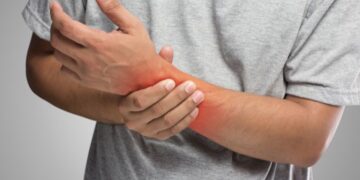- Why don't we lose weight despite dieting? - December 1, 2024
- DANA in Valencia: common illnesses and how to protect yourself - November 4, 2024
The recent DANA (Isolated Depression at High Levels) that affected Valencia has left, in addition to material damage, a series of risks to the health of those affected.
To delve deeper into these implications, we spoke with Dr. Domingo Martínez Hédman, who detailed the most common diseases that can emerge in these scenarios and the necessary prevention measures to mitigate the effects.
Common diseases after DANA
DANA phenomena often generate favorable conditions for the appearance of various infectious diseases, viral or bacterial epidemics
Dr. Martínez Hédman emphasizes that among the most common are digestive diseases, such as gastroenteritis, characterized by vomiting and diarrhea, as well as respiratory infections and skin infections. He also mentioned less frequent but highly relevant conditions such as tetanus, typhoid fever, leptospirosis, and hepatitis A.
Most vulnerable groups
The risks do not affect everyone equally. The expert emphasized that the elderly, children, and people with cardiorespiratory diseases or weakened immune systems are the most likely to suffer serious complications.
People with mental illness and those with limited economic resources are also at higher risk, being more susceptible to decompensations and complications in their chronic pathologies.
Recommendations to protect yourself
In light of these risks, the doctor shared a series of essential recommendations. Drinking only potable water and avoiding spoiled food are crucial measures. He also recommends the use of masks, gloves and protective clothing that covers arms and legs, as well as waterproof boots to protect against contaminated water.
Vaccination is also essential, especially against tetanus, influenza, Covid-19, and typhoid fever. .
The expert stressed that the impact on mental health should not be underestimated. It can cause anxiety, depression, panic attacks, and even suicidal thoughts.
These weather events are expected to become increasingly frequent. Authorities must implement protocols and preventative measures to reduce their impact on the population.





